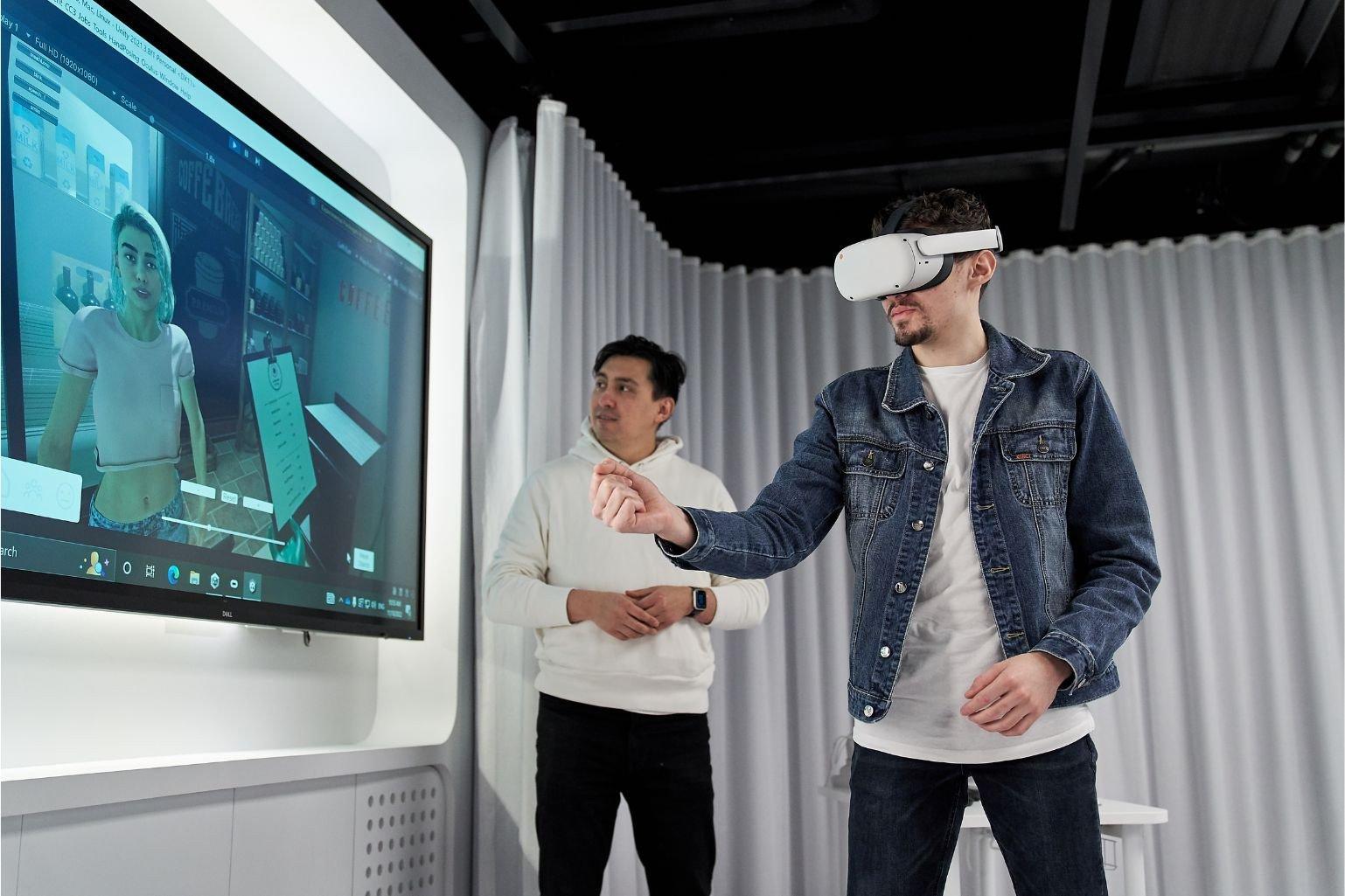Co-leadership with lived experience experts
Knowledge, insights and perspectives of people with lived experience of mental health problems are at the heart of research.
Our mission is to enable a step change in early interventions for anxiety, depression and psychosis.
We fund, commission and work with researchers and decision-makers to achieve this.

Orygen Digital VR Lab
A study investigating the use of VR therapy to improve social cognition impairments and social functioning in young people with early psychosis, led by Professor Thompson and Dr Pot-Kolder.
Millions of people are held back by mental health problems. Interventions aren't working well enough for everyone, have trade-offs and there are challenges with scaling globally. Barriers to collaboration are preventing progress.
There are promising tools, approaches and methodologies ready to break through. Our research funding and advocacy work is fostering collaboration that will lead to new ways to intervene early in anxiety, depression and psychosis.
Knowledge, insights and perspectives of people with lived experience of mental health problems are at the heart of research.
Researchers from different backgrounds, geographies and disciplines are brought together.
New discoveries on how anxiety, depression and psychosis develop, persist and resolve.
Better ways to intervene early in anxiety, depression and psychosis, spanning pharmacological, non-pharmacological and digital.
Decision-makers enable uptake and scaling of new and improved interventions.
To create a world where no one is held back by mental health problems, Wellcome is committed to driving transformation in early intervention for anxiety, depression and psychosis. Miranda Wolpert, Wellcome’s Director of Mental Health, explains.

We're funding research to better understand anxiety, depression and psychosis so we can find ways to intervene earlier. Embedding lived experience expertise is central to our mission.
Our independence means we're prepared to take risks with our research funding. If none of our funded projects fail, then we're not being brave enough.
We bring together groups of researchers from different disciplines to find solutions to complex questions.
By breaking down silos we empower a more coherent and collaborative field where researchers have a common understanding of measures, approaches and concepts.
We advocate for evidence-based approaches that improve global mental health. We do this by working with the private sector, Non-Governmental Organisations (NGOs), charities, governments and affected communities.
Our Mental Health programme funds research to improve early intervention in anxiety, depression and psychosis. You may also be interested in our Discovery Research programme, which funds fields and disciplines seeking new knowledge on life, health and wellbeing, including all aspects of mental health.
Find out what we will and won't fund in our Mental Health programme.
We invite organisations to apply for contract opportunities that support our mission to enable a step change in early interventions for anxiety, depression and psychosis.






This report identifies what we do and don’t know about how interventions for youth anxiety and depression work. It also includes recommendations for future research to fill the gaps and better inform policy and funding decisions.

Stay up to date with some of the biggest stories in global health, and how we're advocating to improve health for everyone.